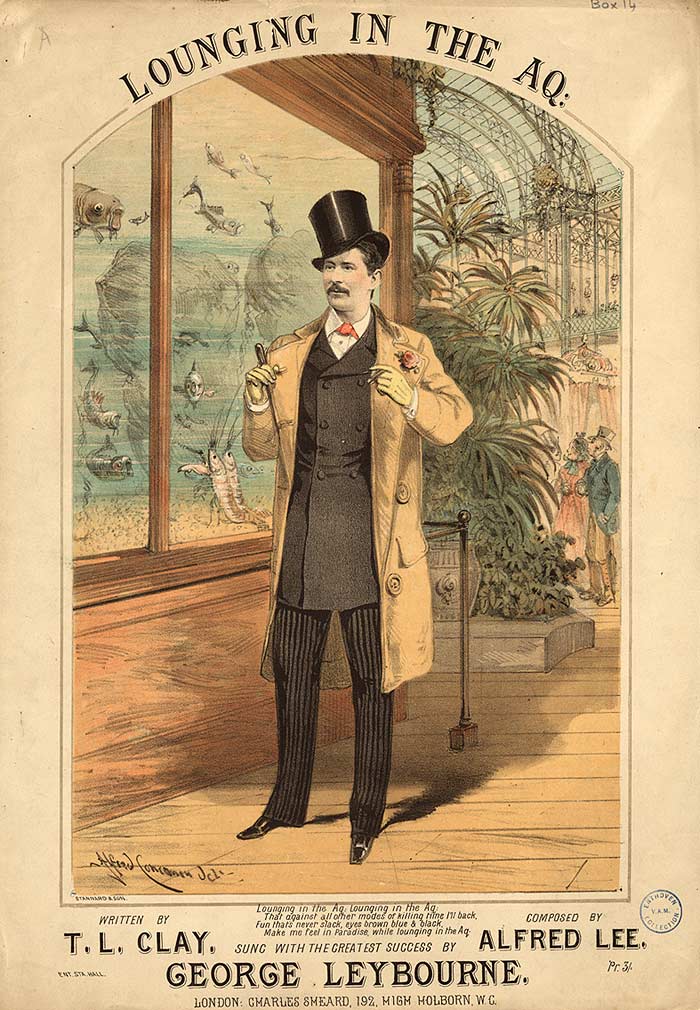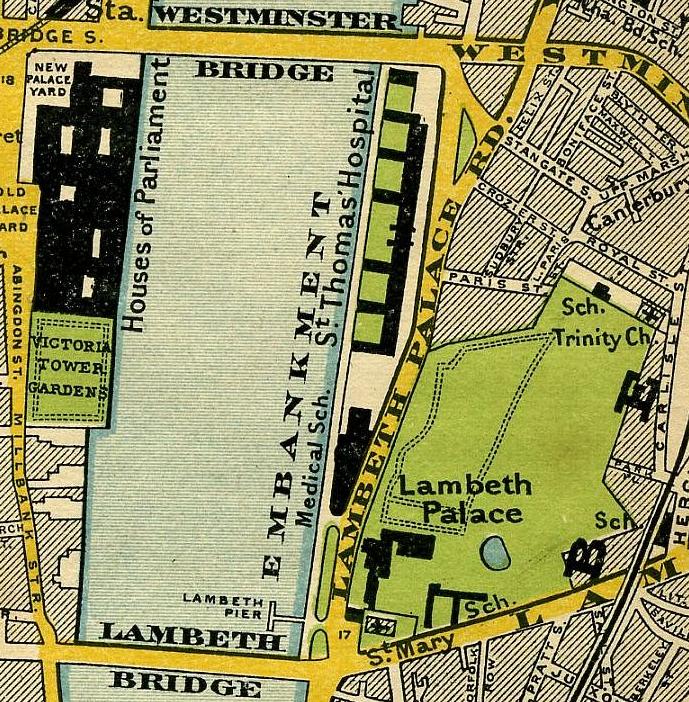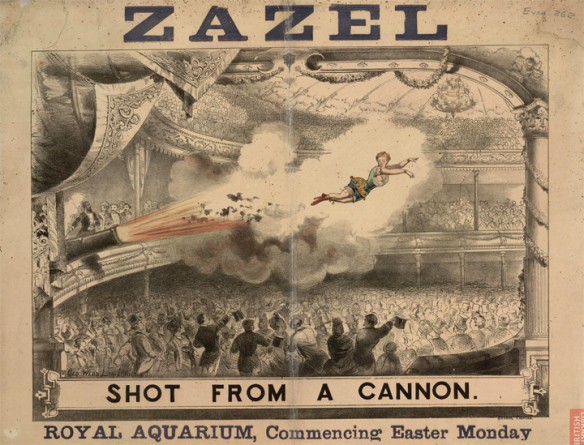|
Royal Aquarium
The Royal Aquarium and Winter Garden was a place of amusement in Westminster, London. It opened in 1876, and the building was demolished in 1903. The attraction was located northwest of Westminster Abbey on Tothill Street. The building was designed by Alfred Bedborough in an ornamental style faced with Portland stone. The Aquarium Theatre was located in the west end of the building and was renamed the Imperial Theatre in 1879. Methodist Central Hall now occupies the site. History The Royal Aquarium opened on 22 January 1876. Its board of directors included Henry Labouchère, the financier and journalist; William Whiteley the retailer; and Arthur Sullivan, the composer. It was intended to offer art exhibitions, concerts and plays, among other intellectual entertainments such as The Crystal Palace.''The ... [...More Info...] [...Related Items...] OR: [Wikipedia] [Google] [Baidu] |
City Of Westminster
The City of Westminster is a London borough with City status in the United Kingdom, city status in Greater London, England. It is the site of the United Kingdom's Houses of Parliament and much of the British government. It contains a large part of central London, including most of the West End of London, West End, such as the major shopping areas around Oxford Street, Regent Street, Piccadilly and Bond Street, and the entertainment district of Soho. Many London landmarks are within the borough, including Buckingham Palace, Westminster Abbey, Whitehall, Westminster Cathedral, 10 Downing Street, and Trafalgar Square. The borough also has a number of major Westminster parks and open spaces, parks and open spaces, including Hyde Park, London, Hyde Park, and most of Regent's Park. Away from central London the borough also includes various inner suburbs, including St John's Wood, Maida Vale, Bayswater, Belgravia and Pimlico. The borough had a population of 204,300 at the 2021 census. ... [...More Info...] [...Related Items...] OR: [Wikipedia] [Google] [Baidu] |
Lambeth
Lambeth () is a district in South London, England, which today also gives its name to the (much larger) London Borough of Lambeth. Lambeth itself was an ancient parish in the county of Surrey. It is situated 1 mile (1.6 km) south of Charing Cross, across the river from Westminster Palace. The population of the London Borough of Lambeth was 303,086 in 2011. The area experienced some slight growth in the medieval period as part of the manor of Lambeth Palace. By the Victorian era, the area had seen significant development as London expanded, with dense industrial, commercial and residential buildings located adjacent to one another. By this point, there were distinct localities (like Vauxhall) appearing on the map, and a separate parish of South Lambeth was created in 1861. The changes brought by World War II altered much of the fabric of Lambeth. Subsequent development in the late 20th and early 21st centuries has seen an increase in the number of high-rise buildings. The ... [...More Info...] [...Related Items...] OR: [Wikipedia] [Google] [Baidu] |
Parliament Of The United Kingdom
The Parliament of the United Kingdom of Great Britain and Northern Ireland is the supreme legislative body of the United Kingdom, and may also legislate for the Crown Dependencies and the British Overseas Territories. It meets at the Palace of Westminster in London. Parliament possesses legislative supremacy and thereby holds ultimate power over all other political bodies in the United Kingdom and the Overseas Territories. While Parliament is bicameral, it has three parts: the sovereign, the House of Lords, and the House of Commons. The three parts acting together to legislate may be described as the King-in-Parliament. The Crown normally acts on the advice of the prime minister, and the powers of the House of Lords are limited to only delaying legislation. The House of Commons is the elected lower chamber of Parliament, with elections to 650 single-member constituencies held at least every five years under the first-past-the-post system. By constitutional conventi ... [...More Info...] [...Related Items...] OR: [Wikipedia] [Google] [Baidu] |
George Robey
Sir George Edward Wade, Commander of the Order of the British Empire, CBE (20 September 1869 – 29 November 1954),James Harding (music writer), Harding, James"Robey, George" ''Oxford Dictionary of National Biography'', Oxford University Press, accessed 10 May 2014. known professionally as George Robey, was an English comedian, singer and actor in musical theatre, who became known as one of the greatest music hall performers of the late 19th and early 20th centuries. As a comedian, he mixed everyday situations and observations with comic absurdity. Apart from his music hall acts, he was a popular Christmas pantomime performer in the English provinces, where he excelled in the pantomime dame, dame roles. He scored notable successes in musical revues during and after the First World War, particularly with the song "If You Were the Only Girl (In the World)", which he performed with Violet Loraine in the revue ''The Bing Boys Are Here'' (1916). One of his best-known original ch ... [...More Info...] [...Related Items...] OR: [Wikipedia] [Google] [Baidu] |
Alfred Vance
Alfred Glanville Vance (born Alfred Peck Stevens; 1839 – 26 December 1888), often known as The Great Vance, was an English music hall singer, regarded as "one of the most important of the early music-hall performers". Biography Vance was born in London in 1839. He worked initially as a solicitor's clerk before appearing in music halls as an actor, and worked under Edmund Falconer in Preston, Lancashire. In the late 1850s he ran a dancing school in Liverpool, and possibly one in Carlisle. He then toured provincial theatres with his own one-man show, featuring his acting, singing and dancing. "He played up to 20 parts at each performance, equally at ease in male or female roles." He first appeared on stage in London in 1859, and the following year made his first music hall Music hall is a type of British theatrical entertainment that was most popular from the early Victorian era, beginning around 1850, through the World War I, Great War. It faded away after 1918 as the ... [...More Info...] [...Related Items...] OR: [Wikipedia] [Google] [Baidu] |
George Leybourne
George Leybourne (17 March 1842 – 15 September 1884) was a singer and '' Lion comique'' style entertainer in British music halls during the 19th century who, for much of his career, was known by the title of one of his songs, " Champagne Charlie". Another of his songs, and one that can still be heard, is " The Daring Young Man on the Flying Trapeze". He remains among the best known 19th century music hall performers. Early life George Leybourne was born Joseph Saunders in Gateshead; however, at an early age he and his family relocated to London. Before he worked for music halls he worked as an engineer in, amongst other places, South West England. For his early music hall performances in Northern England, including Liverpool and Newcastle he used his real name - Joe Saunders - a fact which, in the past, caused much confusion as to his real name. His first performance documented in London using the stage name George Leybourne was at the Bedford Music Hall in 1863, but it is kno ... [...More Info...] [...Related Items...] OR: [Wikipedia] [Google] [Baidu] |
Rossa Matilda Richter
Rossa Matilda Richter (7 April 1860 – 8 December 1937), who used the stage name Zazel, was an English aerialist and actress who became known as the first human cannonball at the age of 17. She began performing at a very young age, practicing aerial stunts like tightrope walking in an old London church. She took up ballet, gymnastics, and trapeze by the time she was 6 and, at 12, went on tour with a travelling acrobat troupe. In 1877, she was the first person to be fired out of a cannon, in front of a large crowd at the Royal Aquarium. Journalists and the public voiced concerns for her safety from the time of her earliest appearances as Zazel. She was named by a lawmaker as one of the reasons for proposed legislation in England to prevent dangerous acrobatic stunts, leading her to take the show to the United States. She toured Europe and North America with circuses including Barnum & Bailey Circus, Barnum & Bailey, executing tightrope, trapeze, and high dive routines in addition ... [...More Info...] [...Related Items...] OR: [Wikipedia] [Google] [Baidu] |
William Leonard Hunt
William Leonard Hunt (June 10, 1838 – January 17, 1929), also known by the stage name The Great Farini, was a well-known nineteenth- and early twentieth-century Canadian funambulist, entertainment promoter and inventor, as well as the first known white man to cross the Kalahari Desert on foot and survive. He also published under the name Guillermo Antonio Farini. Early life Hunt, the second child of Thomas William Hunt and Hannah Soper, was born in Lockport, New York. His parents were strict disciplinarians, but their punishments had little effect on him; as he later recalled, he "took pleasure in disobeying their commands." For example, he loved swimming and had an uncommon ability for it. Of his frequent excursions, many of them would be to go swimming. His mother soon forbade him to and sewed up the collars and sleeves of his clothes so that he could not strip for swimming, but that did not stop him; he would just swim with his clothes on and run in the sun until he was dry o ... [...More Info...] [...Related Items...] OR: [Wikipedia] [Google] [Baidu] |
Music Hall
Music hall is a type of British theatrical entertainment that was most popular from the early Victorian era, beginning around 1850, through the World War I, Great War. It faded away after 1918 as the halls rebranded their entertainment as Variety show, variety. Perceptions of a distinction in Britain between bold and scandalous music hall entertainment and subsequent, more respectable variety entertainment differ. Music hall involved a mixture of popular songs, comedy, speciality acts, and variety entertainment. The term is derived from a type of theatre or venue in which such entertainment took place. In North America vaudeville was in some ways analogous to British music hall, featuring rousing songs and comic acts. Originating in saloon bars within pubs during the 1830s, music hall entertainment became increasingly popular with audiences. So much so, that during the 1850s some public houses were demolished, and specialised music hall theatres developed in their place. These t ... [...More Info...] [...Related Items...] OR: [Wikipedia] [Google] [Baidu] |
Quinine
Quinine is a medication used to treat malaria and babesiosis. This includes the treatment of malaria due to ''Plasmodium falciparum'' that is resistant to chloroquine when artesunate is not available. While sometimes used for nocturnal leg cramps, quinine is not recommended for this purpose due to the risk of serious side effects. It can be taken by mouth or intravenously. Malaria resistance to quinine occurs in certain areas of the world. Quinine is also used as an ingredient in tonic water and other beverages to impart a bitter taste. Common side effects include headache, tinnitus, ringing in the ears, vision issues, and sweating. More severe side effects include deafness, thrombocytopenia, low blood platelets, and an irregular heartbeat. Use can make one more prone to sunburn. While it is unclear if use during pregnancy carries potential for fetal harm, treating malaria during pregnancy with quinine when appropriate is still recommended. Quinine is an alkaloid, a natural ... [...More Info...] [...Related Items...] OR: [Wikipedia] [Google] [Baidu] |







